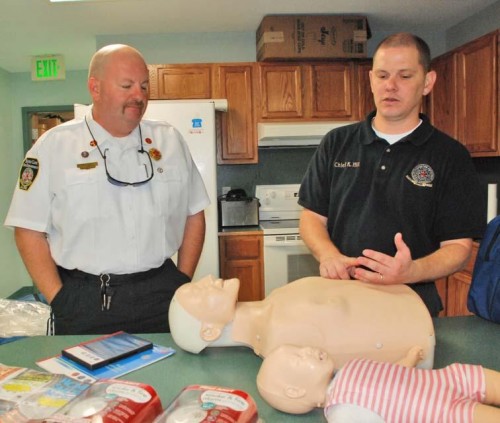
Officials not laughing at Spencer’s gifts
October 5, 2010
Bayou Cane uses grant money for fire safety
October 7, 2010The Nov. 2 elections will put a new face on Congress. The House of Representatives may well switch control from the Democrats to the GOP. Though the Senate is less likely to switch to the Republicans, there is little doubt that the GOP will make solid gains in the upper chamber. Once the high-decibel noise from the elections settles down and the new Congress is sworn in, the most important players to watch will be the Democratic senators up for re-election in 2012.
There are 20 Democrats who currently hold seats that will be up for grabs in 2012 and two more senators who are registered as Independents but caucus with the Democrats. Only 10 Republican incumbents will be up for re-election in 2012 and one seat – West Virginia – is vacant due to the death of Robert Byrd. Democrats obviously will have more seats to defend by almost a two-to-one margin.
At this point, no one can predict with any certainty how the 2012 Senate races will turn out. Two years ago, few would have expected Republicans to be in a state of ascendancy shortly before the 2010 elections. What will be interesting to watch going forward will be how the Democratic senators running for re-election in 2012 will vote on key issues, especially those espoused by President Obama.
Fourteen of the seats currently held by Democrats who will be up for re-election in 2012 are in states where trends are going against President Obama and his party. While California and Washington state may well remain safely in the Democratic column in 2012, Republicans are very competitive in the Senate races in both states and in the governor’s race in California. There is also a good chance that the California seat may be open, since Dianne Feinstein may choose not to run.
The severe impact of the recession in states such as Michigan, Wisconsin, Ohio, and Pennsylvania is moving voters toward GOP Senate and gubernatorial candidates. The GOP Senate candidates in Wisconsin, Ohio, and Pennsylvania currently have leads in the polls, and the Republican candidate for governor of Michigan also has a solid lead.
Montana and North Dakota are states that are trending strongly Republican.
Freshman senator John Tester barely won in 2006, and he will again have his work cut out for him in 2012. Longtime North Dakota incumbent Kent Conrad saw his fellow senator Byron Dorgan decline running for re-election this year due to poor polling indicators. Conrad may well follow suit.
Florida, Virginia, and New Jersey are states that President Obama won in 2008 but have trended toward the GOP since then. Bill Nelson will have a tough race in Florida.
If newly elected GOP governor Chris Christy’s popularity continues to soar in New Jersey, Bob Menendez may have a tough race as well.
Freshman senator Jim Webb barely won in 2006 in Virginia, a state that is rapidly moving back in the direction of the GOP. Then there is the solid GOP state of Nebraska where Democratic incumbent Ben Nelson upset most of the voters with his pro-Obama votes and deals.
If the Democrats hold on to most of those 14 seats listed above, they are probably going to have to do it by distancing themselves from President Obama and many of his policies and initiatives. Many of them may well be inclined to do just that. That means that even if the GOP does not become the majority party in the Senate, they may on many issues end up with a working majority when the “Gang of Fourteen” endangered Democrats join them out of self-preservation.





